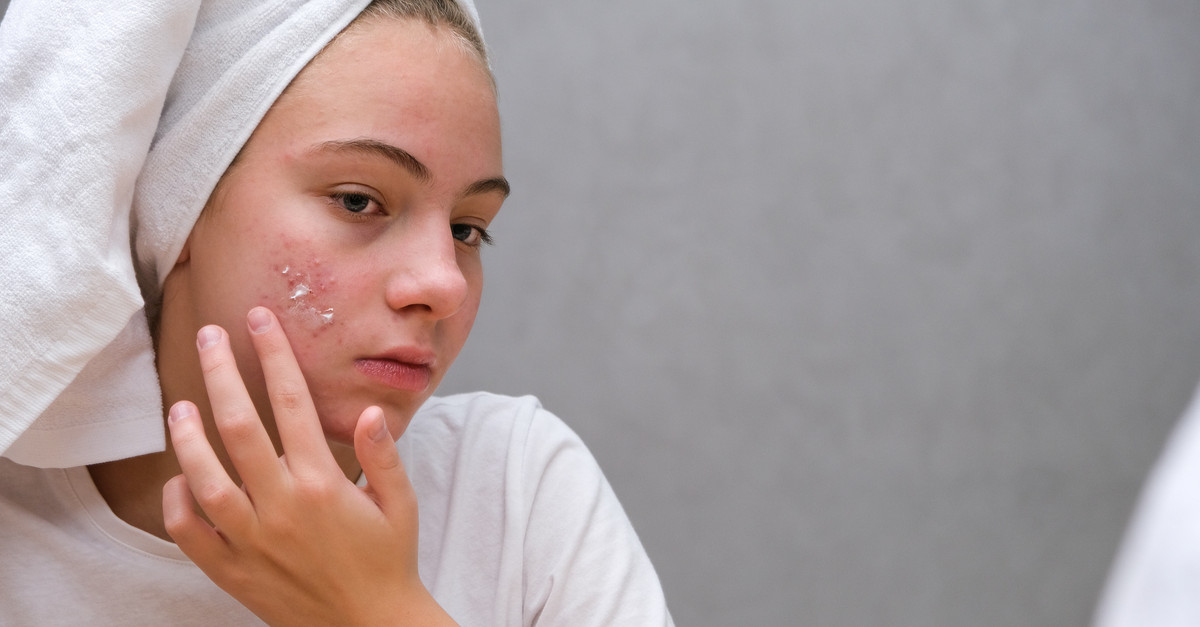For people with severe acne that hasn’t responded to over-the-counter treatments, isotretinoin can be a promising solution. Often referred to as “Accutane,” this medication clears most types of breakouts over time, including those that have resisted antibiotics. While the skin-clearing results it can deliver are impressive, it does come with certain temporary side effects which may be more intense in the summer.
If you’re taking isotretinoin this season, here’s how you can manage side effects that may arise.
(Note: Accutane was discontinued in 2009 as other brands of isotretinoin became available. In many cases, Isotretinoin is still referred to colloquially as “Accutane,” and for the sake of simplicity, we will also refer to the commonly-used brand name below.)
What to Expect When Taking Accutane in the Summer
No matter what time of year you take it, Accutane will likely lead to some irritating side effects. The medicine works by limiting the function of your sebaceous gland, which is responsible for the production of sebum. In people with acne, overproduction of sebum is often the root cause of clogged pores and breakouts. But while limiting sebum will lead to clearer skin, it will also cause skin changes such as:
- Increased dryness
- Chapped lips
- Dryness of your nose and mouth, as well as nosebleeds
- Hair thinning and hair loss
- Sun sensitivity
The medication may also cause acne to worsen for a brief period before it improves. All of these side effects can be frustrating any time of year, but they may be especially bothersome if you’re trying to enjoy an active summer.
Fixes for Side Effects of Accutane in the Summer
Taking Accutane doesn’t have to hold you back from your favorite summer activities. Here are some ways to modify your routine to reduce the medication’s less-appealing impacts.
Become an SPF Loyalist
Sunblock is essential if you’re taking Isotretinoin in any form, no matter the time of year. Since you may spend more time outdoors in the summer, be especially dedicated to your SPF routine. Apply an SPF of at least 30 each morning, and reapply as needed. Look for a non-greasy formula since heavier sunscreens can clog pores and exacerbate your acne symptoms.
Care for Chapped Lips
Your lips become chapped when moisture evaporates from them, which can feel worse if you’re already experiencing the drying effects of Accutane. Apply a lip balm with SPF to prevent sunburn, and then layer it with petroleum jelly to lock in moisture.
Moisturize Frequently
Many people with acne are hesitant to apply moisturizer, because they worry it will clog their pores. But when you’re on Accutane, you’ll need to give your skin some extra help to maintain its natural barrier, which could be hampered by reduced oil production. Look for a moisturizer with ceramides: molecules that help your skin retain moisture, and keep bacteria and irritants at bay. Two of our top picks are CeraVe and Cetaphil, both of which are available at the drugstore.
If you’re considering isotretinoin, allow our skincare specialists to advise on these and other specifics, or even recommend alternate options to treat your acne. In addition to medication, we offer a range of targeted in-office treatments to clear blemishes. Use our self-scheduler online to set up an appointment, or request a consultation by calling (404) 355-5484.


